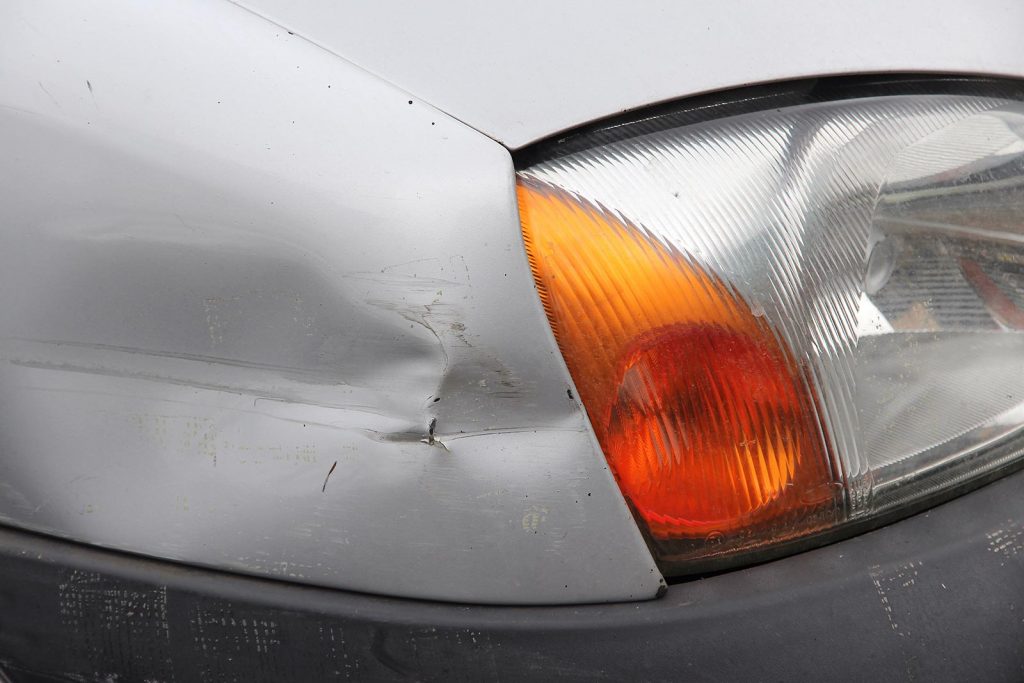
Yes. Mostly.
According to Consumer Reports; A claim-worthy accident happens once every ten years on average. So it’s worth your time to plan ahead – even if you are a safe driver, not everyone is.
After an incident: obtain the name, address, phone number, driver’s license number, plate number, and insurance information of any other drivers involved in the accident, along with the names of anyone with injuries and any witnesses. Don’t argue over who is at fault or admit blame. If possible, take photos of the scene and the damage to the vehicle (such as a cell-phone camera) and make a drawing of the positions of the cars relative to the road and landmarks. Video taken with a steady hand that allows viewers to track what happened and how your vehicle came to rest is invaluable.
If an officer comes to the scene, be calm and cool and state as best you can the order of events. Wait your turn if the other driver is talking; being the calmest will increase your credibility in the eyes of the police. Let the officer know if you are in pain – it will be better for your case if it is on the accident report. Though it’s not a fact of law in a court; the impression of the officer is often key circumstantial evidence. Even if they are wrong on the incident report, it’s an uphill battle to correct later. Be firm and calm and if you are too anxious, let the officer know you need a little time to collect yourself. Forcing the issue will almost never work.
You may find it helpful to use a smart phone app to collect the data – after an accident, as you may find your attention to detail diminished. For Android you can look at; You can find an app on the Google Play store, or the App Store for iPhone. The important thing is they help walk you through all the important details to record and you store either pictures or sound. Any evidence that supports or contests the incident report is vital to a case.
Reporting vs. Claiming Damages:
If it’s just your car; as long as there is no ‘observable damage’ of over $500 and no injuries, reporting is left to your discretion that’s under Georgia Law. However; your insurance policy in Georgia includes a “Notice of Occurrence Claims Clause.” This requires you to report in a prompt matter any accident. That’s your agreement with them and it can affect your coverage.
So ALWAYS REPORT. You don’t have to file a claim, just let the insurer know what happened. Before making a claim, we recommend contacting an attorney familiar with auto accident law, because if you ever have to go into court, or negotiate a settlement, you will need their advice.
There’s no hard and fast rule for claims on the small stuff. Some insurers provide “forgiveness” (or even automatic replacements like road-damaged windows). Check for any “freebies” first. A small incident may change how your insurer looks at your risk and increase rates. In most cases, a one-car incident that is less than your deductible is probably better to be handled on your own. Remember to document the details anyway – even a small fender bender below 10 mph can cause considerable damage to some cars. Your car’s resale value may also be affected. The safest path is to get a mechanic to look at the car quickly, and then call the insurance with any additional information. Here’s a good article on the topic.
However, if you are injured, you should always report as a failure to do so may preclude your ability to seek reimbursement for damages caused.
McGahren Law offers free consultation on all injury matters.
DISCLAIMER: The information herein is for educational purposes only and does not constitute legal advice. For any legal matters, we urge you to take the advice of an attorney familiar with your case.



